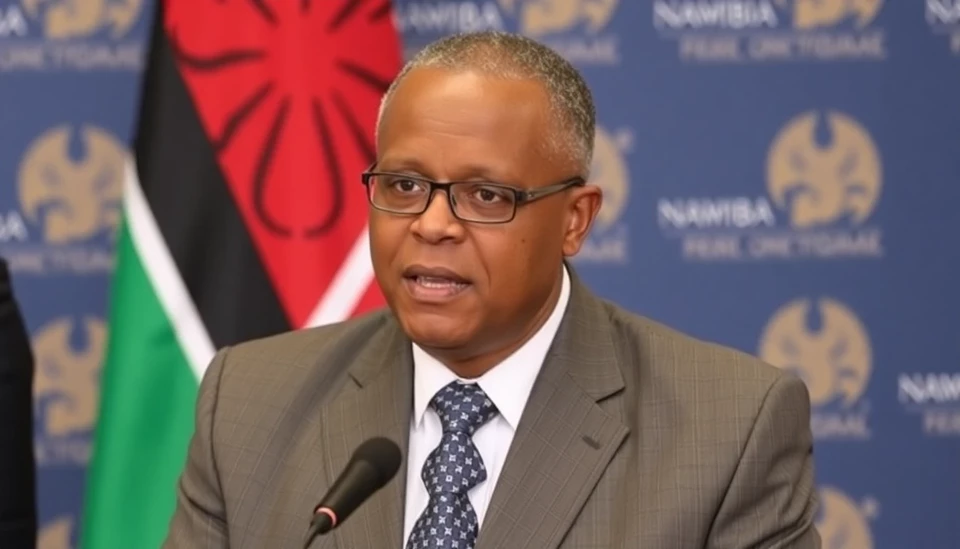
In a significant development for Namibia's financial landscape, the government announced that it is on course to retire a portion of its $750 million bond. This move reflects the country’s ongoing commitment to managing its debt effectively and improving fiscal stability amidst a challenging economic backdrop.
Financial Minister Ipumbu Shiimi specified in a press briefing that the country has made substantial progress towards its goal. This strategic decision follows the government’s assessment of its current fiscal health and the opportunities available for meaningful debt reduction. “Retiring this bond is pivotal for our financial resilience,” stated Shiimi, highlighting the proactive measures Namibia is taking to ensure sustainable economic growth.
The bond in question, which was initially issued to help fund infrastructure projects and public services, has been a considerable burden in terms of interest payments. By lowering its debt load, the Namibian government aims to free up resources that can be redirected towards critical sectors such as education and healthcare, which are essential for national development. Analysts have pointed out that this bond retirement signals a shift towards more responsible fiscal management, a necessary step for attracting foreign investments and fostering economic stability.
In the overall fiscal strategy, Namibia is focusing on optimizing its budget allocation amid pertinent challenges such as rising inflation and global economic pressures. The government is seeking to implement policies that not only stabilize the economy but also promote growth in various sectors. “This initiative exemplifies our resolve to create a robust fiscal environment that is conducive to investment and growth,” Shiimi added.
The commitment to retire part of this bond is also rooted in Namibia’s efforts to reinforce its creditworthiness. Credit ratings are vital for countries seeking to access international capital markets, and a favorable rating can lead to lower borrowing costs. The government’s approach aims to assure investors of Namibia’s financial discipline and its ability to manage obligations effectively, which is particularly crucial in a time of heightened economic uncertainty globally.
As the plans unfold, stakeholders are keenly observing how this bond retirement will impact Namibia’s overall economic trajectory. The successes or challenges faced in this endeavor could serve as a case study for other nations with similar fiscal challenges, emphasizing the importance of strategic financial management in achieving long-term sustainability.
In conclusion, Namibia’s proactive steps towards retiring part of its $750 million bond not only reflect a growing commitment to fiscal responsibility but also set the stage for potential economic revitalization and enhanced investor confidence in the nation’s financial management strategies.
#Namibia #BondRetirement #FiscalResponsibility #EconomicGrowth #Investment #Finance #DebtManagement
Author: Rachel Greene




